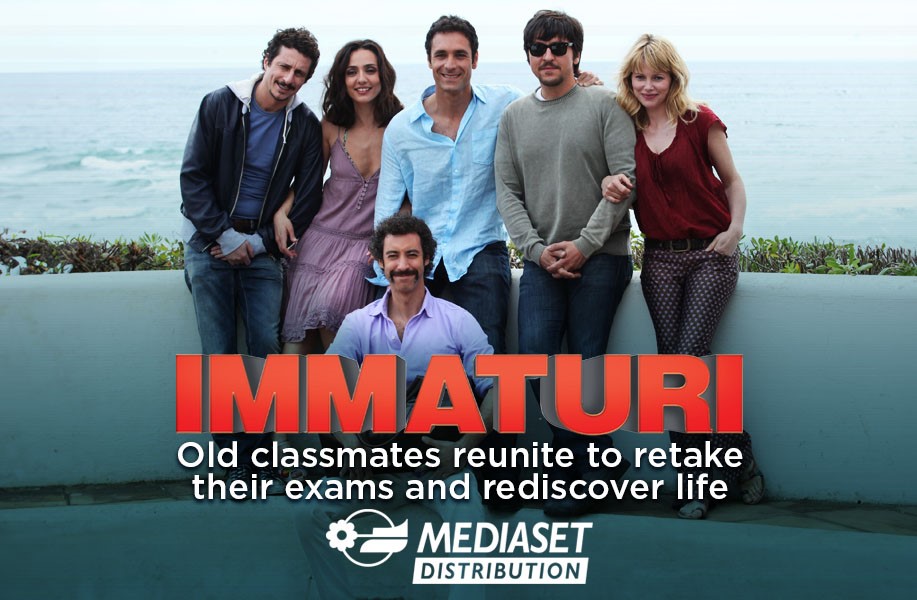"We decided to have Spain as a guest country precisely because Spain, from our point of view, represents a European point of reference for animation and at the same time an important dialogue partner of exchange of information and co-production. So for us, it is very important to have both televisions and different and multimedia broadcasters, but also Spanish directors and creators," said Roberto Genovesi, Artistic Director of COTB.
In a virtual breakfast, Nathalie Martinez, President, DIBOOS (Federación Española de Productores de Animación y Efectos Visuales) and Alessandra Principini, Vice President, Cartoon Italia gave an overview of the Spanish and Italian funding and tax incentive system for animation and kids products. Martinez mentioned that Spain has the general scheme and the selective schemes."The difference among them is the budget of the production," she explained. Projects of 2.5 million and up goes to general scheme and if they are more independent kind of production going to selective schemes. It's more for artistic and cultural films. "We can get subsidies from 1 million to 1.2 million for a feature film from 2.5 million and up. And then for the independent films, you can get to 800 to 1 million. Furthermore, If you are in a minority co-production, if you are the minority co-producer, then it's going to be a top of 300 mil" she detailed. Martinez also pointed out that Spain has an 8% reservation for animation. "So even if you compete with live-action movies in the same scheme, at least this 8% is guaranteed for animation investment."
In Italy, the total fund for Cinema and Audiovisual is 696 million euros for 2024. The Tax credit is 412.7 million euro; the automatic funds are 21.3 million euro; the selective funds are 84.3 million euro, the funds destined to promotional activities are 136 million euro, there is also a strengthening of skills for 20.8 million euro and the support to cinema venues is 20 million euros. "The tax credit is quite high, and we also have automatic funds, which are quite new and very helpful because Italian producers have the chance to reinvest in new works, money that is collected from the success or the results of the previous series or films. If they have a gap in the new financing plan, they can reinvest this money in order to cover the gap," commented Cristian Jezdic, Vice President of Cartoon Italia.
CO-PRODUCING OPTIONS
Spanish-Italian society group DeAplaneta is a perfect example of the synergy between both countries. Diego Ibáñez Belaustegui, Chief Brand Officer, DeAPlaneta, reminded when in 2004 Italian company De Agostini entered DeAplaneta group. "From this moment on, we are a part of a Spanish-Italian society, we have interests in many different things. With this genetic, in Spain and in Italy, it is easier to think about things such as the creation of stories," he mentioned. "In DeAplaneta group, every year, 2,500 new stories are created. Every day, 7 new stories are published," he said.
Francesco Manfio, General Manager of Gruppo Alcuni mentioned the ties of the Italian company with Spanish producers and talked about Gruppo Alcuni's new international production, "The Black Diamond Race," that have nine episodes of 45 minutes each. "Something absolutely out of the traditional standards," he affirmed. "For us, it's even more interesting because we are dealing with a target that is not exactly the target with which we deal with our series. Then another thing that I really like about this series is that the story takes place in Europe and in India, and I believe that this can also be another way to make stories that are bridged between continents, with functional, financial, and economic collaborations," he said. "Think about continents that can be loved by children, by the whole world; it's a common challenge between Italy and Spain and the other countries that will work with us in this new era."
Discussing how both countries can collaborate together even more, Ibáñez Belaustegui said that audiovisual business is simply now in crisis because it is absolutely globalized, and the streamers have had a big impact on it. "They created much more competence, much content, all these platforms attract and grab the attention of kids and this is a situation that cannot be changed," he said, but he also asserted that there is a positive thing. "Italy and Spain have the economic capacity to finance one hundred percent of a property capable of competing on an international level. I think that here there are many ideas that can move forward with the new platforms," he said.
Manfio commented that there are two markets where Italian and Spanish producers can participate, the global and international one, where it's clear that a lot of money is needed as well as a great idea. "In this market, it is unthinkable to be able to make a series with less than 7-8 million euros, and for that, we think of Italy, we think of Spain, we think of Germany", he added. "On the other hand, we must invest in small productions with lower budgets which is another challenge, however, I believe we absolutely must be there," he concluded.










